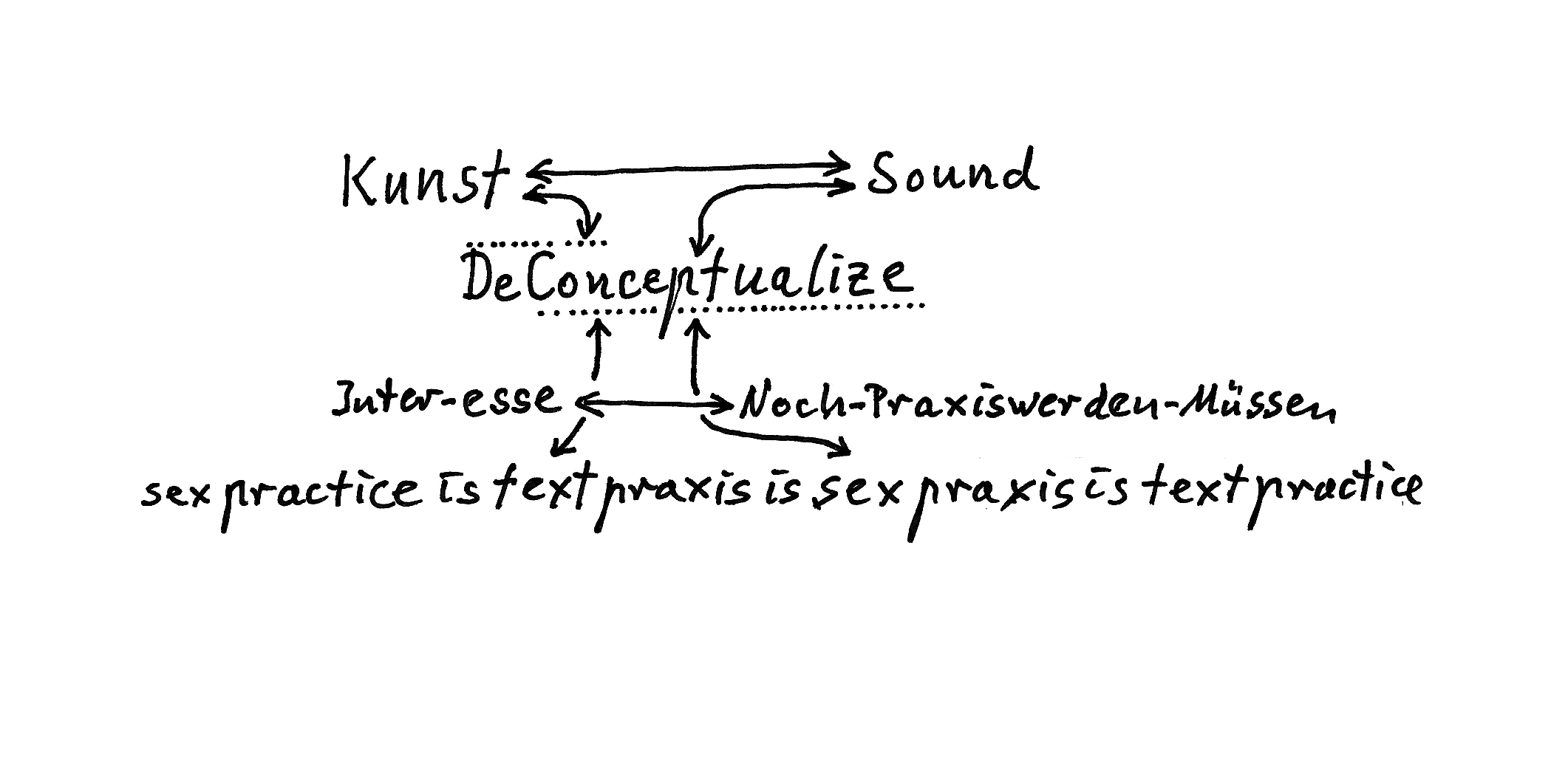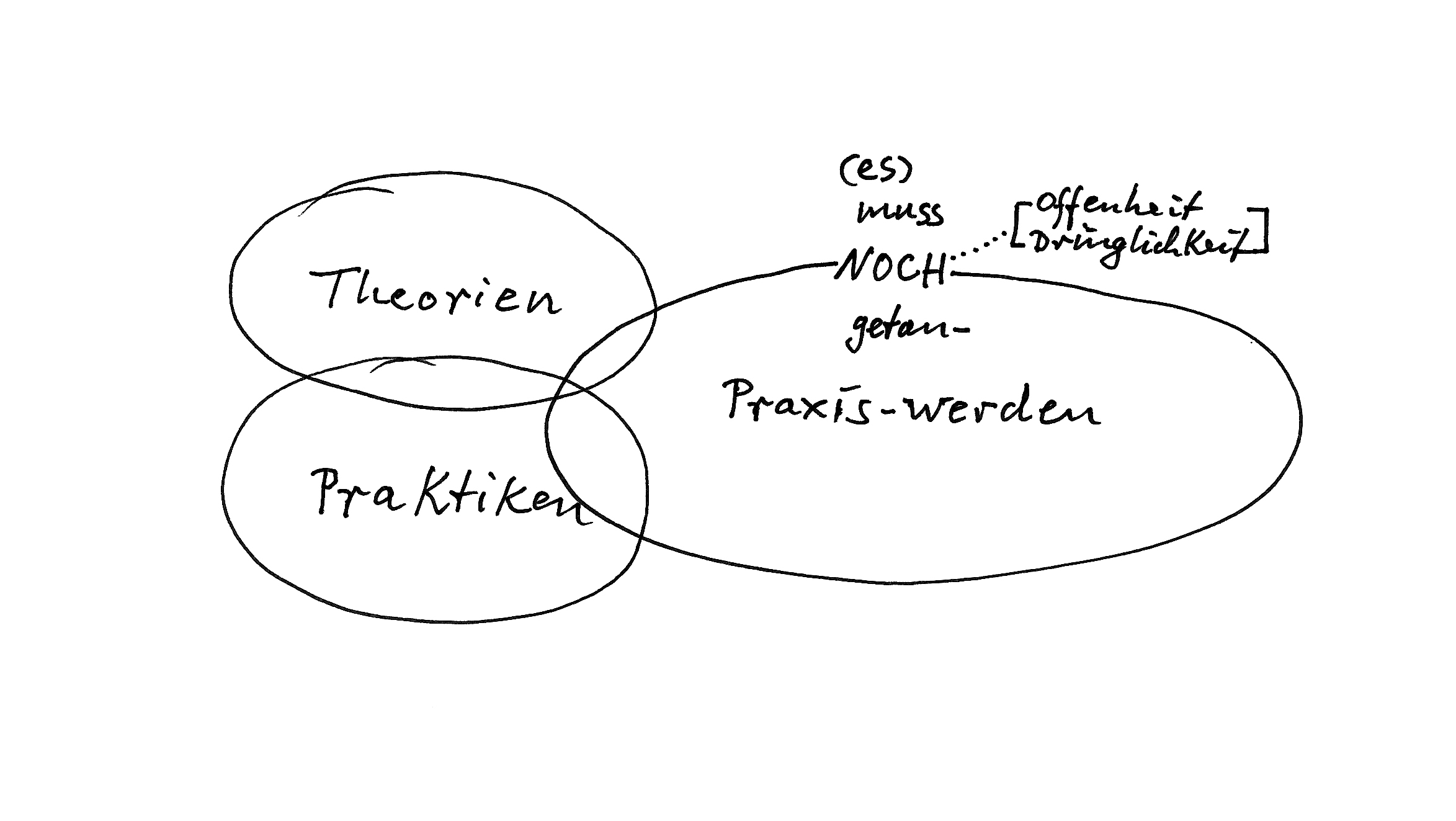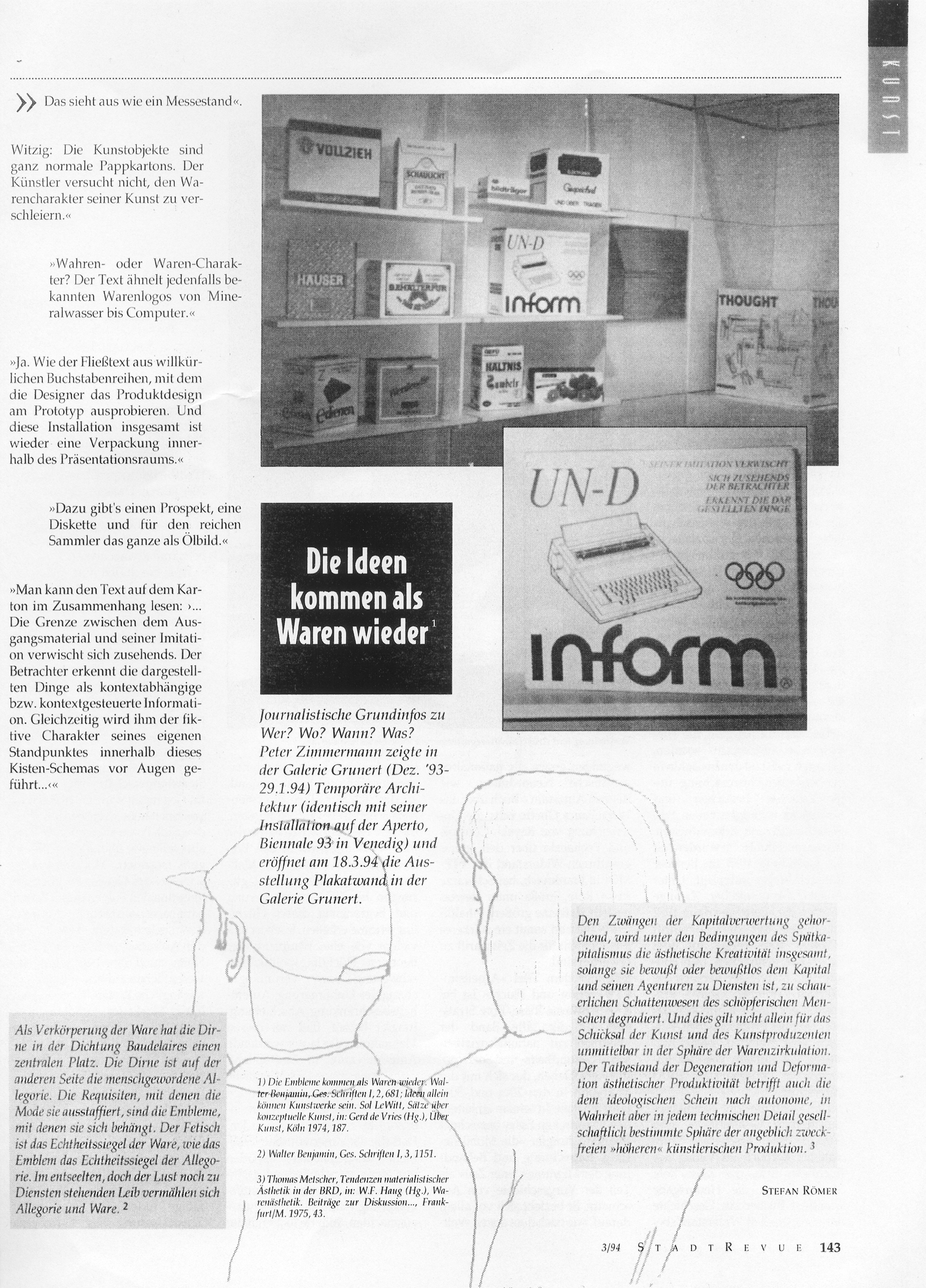Stefan Römer DeConceptualize
Pressedownload
Der Pressedownload darf nur im Zusammenhang mit einer Buchbesprechung verwendet werden. Für die Illustration einer Buchbesprechung können nur bis zu drei Bilder genutzt werden. Für andere Textformate und Nutzungszwecke (wissenschaftliche Vorträge, Werbung oder ähnliches) bitten wir Sie, vorab mit uns in Kontakt zu treten, um mögliche Fragen zu Honorarkosten, Nutzungsund Urheberrechten zu klären. Die bereitgestellten Bilddaten dürfen nicht manipuliert, beschnitten oder zweckentfremdet verwendet werden. Die Pressebilder dürfen nur mit dem vollständigen Bildtitel, dem Namen des Künstlers und/oder Urhebers sowie mit dem Hinweis auf den Hatje Cantz Verlag veröffentlicht werden. Bitte beachten Sie außerdem im Einzelfall die Reproduktionsbedingungen der VG Bild-Kunst Bonn bzw. der internationalen Verwertungsgesellschaften für Bildende Kunst.
Stefan Römer
 Stefan Römer
Stefan RömerJPEG-Format (343 KB)
2122 x 1025 Pixel
© VG Bild-Kunst, Bonn, sowie Stefan Römer Download
 Stefan Römer
Stefan RömerJPEG-Format (413 KB)
2347 x 1323 Pixel
© VG Bild-Kunst, Bonn, sowie Stefan Römer Download
 Stefan Römer
Stefan RömerJPEG-Format (2.454 KB)
1698 x 2362 Pixel
© VG Bild-Kunst, Bonn, sowie Stefan Römer Download
With DeConceptualize – Zur Dekonstruktion des Konzeptuellen in Kunst, Film, Musik, Stefan Römer presents—after Strategien des Fake (2001) and Inter-esse (2014)—his third theoretical book, which was made possible by the Berlin Artistic Research Grant Programme. Römer shows how formerly self-defined Conceptual art is being stripped of its emancipatory power by means of institutional administration: The application of principles of entrepreneurship and academization deprive it of its epistemic potential—the unification of theory and practice. In contrast, Römer practices self-exploration, self-defense, and self-empowerment in deconceptual writing as notation, essay, image, and material. His deconceptualization of art contrives, by means of a multi-layered critique of the usual discourses, a new kind of artistic REALsearch.
Funded by the Berlin Artistic Research Grant Programme and by Berlin’s Senate Office for Culture and Europe
STEFAN RÖMER (*1960) is an artist and art theorist. He initiated the politically activist art collective "FrischmacherInnen", was awarded the AdKV Prize for Art Criticism in 2000, and has held professorships at various institutes. There is an extensive web archive for his essay film Conceptual Paradise (2006).
With DeConceptualize – Zur Dekonstruktion des Konzeptuellen in Kunst, Film, Musik, Stefan Römer presents—after Strategien des Fake (2001) and Inter-esse (2014)—his third theoretical book, which was made possible by the Berlin Artistic Research Grant Programme. Römer shows how formerly self-defined Conceptual art is being stripped of its emancipatory power by means of institutional administration: The application of principles of entrepreneurship and academization deprive it of its epistemic potential—the unification of theory and practice. In contrast, Römer practices self-exploration, self-defense, and self-empowerment in deconceptual writing as notation, essay, image, and material. His deconceptualization of art contrives, by means of a multi-layered critique of the usual discourses, a new kind of artistic REALsearch.
Funded by the Berlin Artistic Research Grant Programme and by Berlin’s Senate Office for Culture and Europe
STEFAN RÖMER (*1960) is an artist and art theorist. He initiated the politically activist art collective "FrischmacherInnen", was awarded the AdKV Prize for Art Criticism in 2000, and has held professorships at various institutes. There is an extensive web archive for his essay film Conceptual Paradise (2006).
With DeConceptualize – Zur Dekonstruktion des Konzeptuellen in Kunst, Film, Musik, Stefan Römer presents—after Strategien des Fake (2001) and Inter-esse (2014)—his third theoretical book, which was made possible by the Berlin Artistic Research Grant Programme. Römer shows how formerly self-defined Conceptual art is being stripped of its emancipatory power by means of institutional administration: The application of principles of entrepreneurship and academization deprive it of its epistemic potential—the unification of theory and practice. In contrast, Römer practices self-exploration, self-defense, and self-empowerment in deconceptual writing as notation, essay, image, and material. His deconceptualization of art contrives, by means of a multi-layered critique of the usual discourses, a new kind of artistic REALsearch.
Funded by the Berlin Artistic Research Grant Programme and by Berlin’s Senate Office for Culture and Europe
STEFAN RÖMER (*1960) is an artist and art theorist. He initiated the politically activist art collective "FrischmacherInnen", was awarded the AdKV Prize for Art Criticism in 2000, and has held professorships at various institutes. There is an extensive web archive for his essay film Conceptual Paradise (2006).







